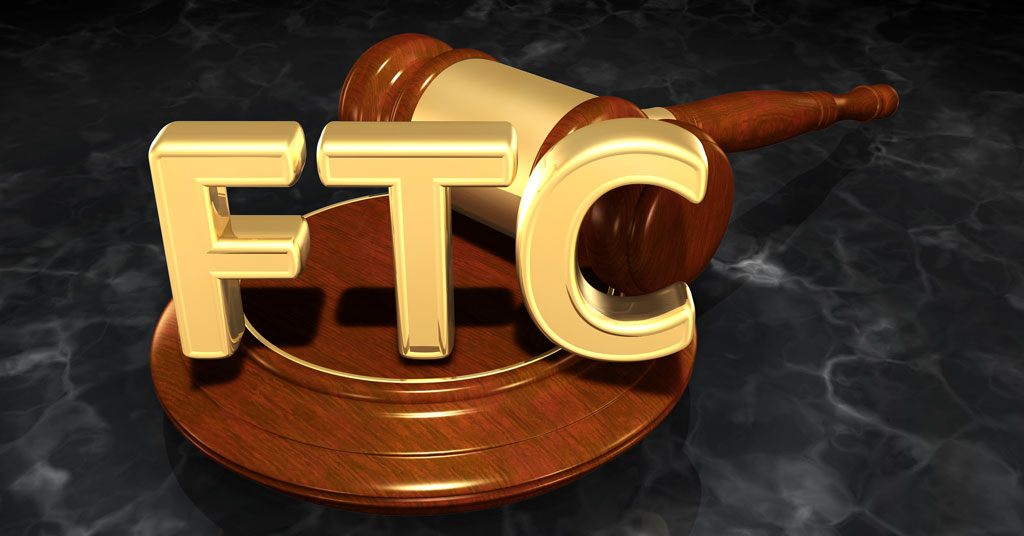Are Changes Coming to the FTC's Franchise Rule?

On November 10, the Federal Trade Commission held a virtual public workshop addressing the continued utility of its Trade Regulation Rule entitled “Disclosure Requirements and Prohibitions Concerning Franchising,” 16 CFR Part 436 (the FTC Rule). The workshop was part of a systematic review of all FTC regulations and portends potential revisions to the Rule.1
The workshop focused on three issues: 1) financial performance representations, 2) the use of disclaimers, and 3) the format of the FDD. Among the participants at the workshop were state franchise administrators, franchisor and franchisee counsel, and at least one franchisee.2
Financial performance representations (FPRs)
In suggesting that the FTC Rule be revised to require that franchisors provide a financial performance representation (FPR), Dale Cantone (Assistant Attorney General, Deputy Securities Commissioner, Office of the Maryland Attorney General, and Chair of the Franchise and Business Opportunities Committee/Project Group of NASAA) noted that approximately 60% to 66% of franchisors currently include FPRs in their FDDs, that such information is most important to prospective franchisees, and that the cost to franchisors of providing FPRs is offset by the benefit to franchisees.
Other commentators argued against mandatory FPRs, claiming, among other things, that:
- Reliable franchisee information may not be available, especially in systems where franchisees are not required to report their earnings (e.g., where the royalty fee is a fixed dollar amount); franchisees are either not reporting their earnings or other information to the franchisor or are reporting figures that are suspect; or the franchise system is young and does not have a performance history.
- Mandatory FPRs would be a barrier to entry for certain categories of franchisors, such as international franchisors without U.S. operations.
- Prospects who do not receive an FPR can always choose not to proceed.
- Comparable information is available from sources other than Item 19 of the FDD, including information provided by existing franchisees, industry sources, and the Internet.
- Mandatory representations may impose a substantial cost on the franchise system, potentially requiring the collection of new data, the installation of new systems to collect the data, and the review and analysis of that data.
- A single disclosure format is likely not relevant across all industries. For example, top-line sales may be relevant for a QSR concept, where all units are of a similar size and configuration, but may not be relevant for a hotel brand with disparate facilities. In such an instance, RevPAR (revenue per available room) is the more accepted and useful statistic.
Some commentators expressed concerns about the cost to franchisees of preparing reliable information for use by their franchisors; representations by unlicensed and unregulated franchise brokers and consultants who have no fiduciary obligation to prospective franchisees; and the potential for franchisors to steer prospects to only the most successful existing franchisees.3
Disclaimers, waivers, and questionnaires
The second workshop session focused on the use of disclaimers, waivers, and questionnaires. Commentators highlighted the distinction between explaining the content of the FDD and disclaiming it, noting that the prohibition on disclaimers has resulted in the rejection by state administrators of explanatory language. As a result, prospective franchisees are more likely to misinterpret the FDD.
Theresa Leets (Assistant Chief Counsel of the Securities Regulation Unit, California Department of Financial Protection and Innovation’s Legal Division) suggested remedying the situation by amending the FTC Rule to add a definition of the prohibited “disclaimers.” She also noted that permissible explanations should be specific, and not apply to all businesses generally.
Similar disagreement was expressed with respect to the use of integration clauses. Leets noted that integration clauses illustrate the power and information imbalance in the franchise relationship, and asserted that integration clauses are a way to circumvent the franchisee’s ability to bring a lawsuit when franchisors make representations outside of the franchise agreement. Others defended the use of integration clauses as a hallmark of contract law and noted that the franchisor’s disclosure requirement itself is intended to address any information imbalance between franchisors and franchisees.
The session also addressed the use of questionnaires and acknowledgements in the franchise sales process. Some commentators were critical of questionnaires, claiming that they discourage franchisee transparency about having received impermissible information in the disclosure process. According to these commentators, franchisees fear that if they provide answers to the questionnaire that reveal violations, the franchisor will not proceed with the sale. These commentators also noted franchisors’ use of questionnaires and acknowledgements as an improper means of avoiding liability for sales law violations and other claims, such as fraud. The franchisor attorney commentators defended use of questionnaires and acknowledgements, citing their role in clarifying that only information provided by the franchisor — and not by other sources or parties — should be relied upon by the prospective franchisee.
Surprisingly, the workshop did not raise what is perhaps the most common justification for questionnaires and acknowledgements: Answers to the questionnaires and acknowledgements enable the franchisor to prevent and remedy a potential violation of the law and potential harm to the franchise before the franchise sale is consummated (e.g., waiting the proper amount of time between FDD disclosure and signing the franchise agreement and identifying who in the system is sharing impermissible information).
The current FDD format
The third session focused on the pros and cons of the current FDD format. Much discussion was had as to whether a summary document should be added to the FDD. The franchisee attorney commentators raised concern that a summary would discourage prospects from reading the full FDD, and that the summarized issues may not address all those that are material to the prospect. The franchisee attorney commentator spoke in favor of a summary, claiming that it could bring the essential FDD Items front and center.
There was a difference of opinion as to whether the length of FDDs deters prospects from reading them. While commentators noted that the majority of prospective franchisees are not first-time franchisees (i.e., they are purchasing rights for additional units) and will likely not take the time to read the FDD in addition to a summary document, the franchisee attorney commentator asserted that the FDD is too broad and too long. The franchisee participant noted that the length of the FDD is not the primary issue, and that the primary issue rather is knowing how to make an educated business decision with the abundant information that is available.
All commentators seemed to favor providing FDDs electronically with hyperlinks and search functions.
Expected changes to the FTC Rule
While the FTC has not directly stated what, if any, changes will be made to the FTC Rule, it is likely that modest revisions will be proposed. This would be consistent with past practice. Following its 1995 regulatory review, the FTC felt compelled to make changes; however, they were relatively limited. Perhaps this was a reflection of the fact that the FTC Rule had been in effect for a considerable time without tremendous public complaint, and because of the complexity in imposing a single rule that is applicable and relevant across a wide range of industries and circumstances.
Among the most likely changes we anticipate are the following:
- Incorporation of the recent NASAA commentary on FPRs into the FTC Rule. This change is a relatively easy one for the FTC. The commentary has been vetted by the franchise administrators of the roughly 15 states that regulate the offer and sale of franchises and addresses the Item 19 requirements of the FTC Rule. Moreover, because the NASAA commentary has, for all practical purposes, been adopted by the state franchise administrators, franchisors that are lawfully offering and selling franchises in one or more of these 15 states are already complying with the NASAA commentary. As a result, the FTC’s adoption of the NASAA commentary would have little real effect on most franchisors.
- Clarity regarding prohibited disclaimers. The FTC could, and likely should, fill this void. Considerable uncertainty has existed as to what constitutes a prohibited disclaimer. A uniform definition or set of guidelines would reduce this uncertainty, and thus reduce the unnecessary legal risk that has resulted from it.
- Additional regulation to promote electronic disclosure. The FTC Rule currently permits franchisors to deliver their FDDs through electronic means, and a significant number and percentage of franchisors do so. However, the FTC Rule prohibits the inclusion of any content and links beyond the FDD itself, other than basic navigational tools. The FTC may loosen this restriction, permitting hyperlinks to, among other things, the FTC and state websites. It may also encourage franchisors to post their FDDs on their websites.
Conclusions
For the reasons noted by the commentators, we do not expect that the FTC will mandate FPRs or the addition of a summary document to the FDD. These changes would be far more substantive and significant than the changes that we anticipate, and would likely cause confusion and uncertainty (as well as heightened legal risk and dispute resulting from that confusion and uncertainty).
The FTC is accepting public comments until December 17. It remains to be seen whether the FTC will adopt any changes to the FTC Rule and, if so, the nature of the changes. However, based on the workshop, the FTC’s focus appears fixed on FPRs, disclaimers/waivers, and summary documents.
Editor’s Note: A video recording of the Franchise Rule Workshop is available online.
Joyce Mazero and Jan Gilbert are partners at Polsinelli. They wish to acknowledge the assistance of Emily Doan, associate at the firm.
1 Before the workshop, the North American Securities Commissions Association (NASAA), an association that includes U.S. and Canadian state and provincial franchise administrators, issued commentaries announcing their interpretation of the FTC Rule. These commentaries have addressed financial performance representations, multi-unit franchises, the use of a new state cover sheet, and the effect of the current Covid-19 pandemic on a franchisor’s disclosure obligations.
2 The November 10 workshop was preceded by a request for public comment, in which the FTC elicited input on 13 questions, ranging from whether there was a continued need for the FTC Rule to what modifications, if any, should be made to it. Many of the questions included sub-questions, requesting evidence or other support for the respondent’s position. By the May 13, 2019 deadline, the FTC had received 41 public comments.
3 Virtually all commentators showed support for incorporating the recent NASAA financial performance representation commentary into the Franchise Rule.
Share this Feature
Recommended Reading:
Comments:
comments powered by Disqus| ADVERTISE | SPONSORED CONTENT |
FRANCHISE TOPICS
- Multi-Unit Franchising
- Get Started in Franchising
- Growth
- Operations
- Open New Units
- Leadership
- Marketing
- Technology
- Legal
- Awards
- Rankings
- Trends
- Featured Franchise Stories
| ADVERTISE | SPONSORED CONTENT |






 The franchise listed above are not related to or endorsed by Franchise Update or Franchise Update Media Group. We are not engaged in, supporting, or endorsing any specific franchise, business opportunity, company or individual. No statement in this site is to be construed as a recommendation. We encourage prospective franchise buyers to perform extensive due diligence when considering a franchise opportunity.
The franchise listed above are not related to or endorsed by Franchise Update or Franchise Update Media Group. We are not engaged in, supporting, or endorsing any specific franchise, business opportunity, company or individual. No statement in this site is to be construed as a recommendation. We encourage prospective franchise buyers to perform extensive due diligence when considering a franchise opportunity.